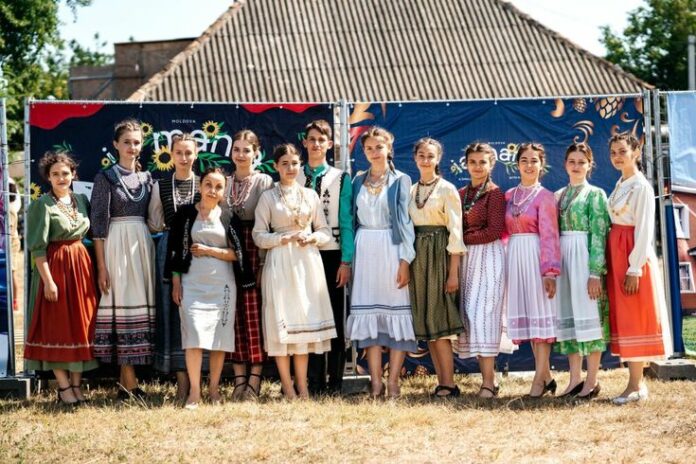Gagauz dili, is the language spoken by the Gagauz people and it belongs to the Oghuz subgroup of the Turkic languages. There are approximately 180 thousand Gagauz language speakers in the world – the majority of them being in the Republic of Moldova.
As such, the notion of “Gagauz” as well as the name of the language were not known until the end of the 19th century, when the Russian scientist and researcher Valentin Moshkov organized a series of expeditions, gathered materials and published articles about the people called Gagauz.
According to, Vitalii Sirf, philology PhD, in the Gagauz language only 15-20% of words were borrowed from the Arab and Persian languages. The rest of the vocabulary was of different origins: Turk, Roman, as well as many Slavic words.
The Gagauz written language with Cyrillic letters was adopted in 1957. At the beginning of the 90s the Gagauz language switched to the Latin alphabet since the intelligentsia and teachers considered that the Latin alphabet better reflected the specificity of the Gagauz language.
In 2018, the people’s Assembly of ATU Gagauzia adopted the Law on the expansion of the scope of the Gagauz language use, thus obliging Gagauz officials to know the Gagauz language.
In 2010, the United Nations Organization declared Gagauz to be a language prone to extinction.
The Turkish language, the old Osman-Turk language, which is now called modern Turkish language is different from the Gagauz language which also has Turkic origins and their separation took place back then in the Balkans. There, in the Balkans, a range of conditions were created, both ethnographic and linguistic, that influenced the structure of phrases and the lexicon. The phonetics and the intonations were influenced, the rhythm of the speech is totally different from the Turkish language.
Vitalii Sirf, philology PhD
FOR THE MOST IMPORTANT NEWS, FOLLOW US ON TWITTER!
The Law on the expansion of the scope of the Gagauz language use stipulates a range of measures to be implemented: there must be two subjects taught in Gagauz language in the primary school; the members of the People’s Assembly and of the Executive Committee must know Gagauz.
Ecaterina Jecova, former member in the People’s Assembly, co-author of the draft local law
This material was developed in the framework of the project “Supporting institutionalized and sustainable dialogue on Gagauzia Autonomy”, implemented by CMI – Martti Ahtisaari Peace Foundation and financed by Sweden. The opinions expressed in this material pertain to the authors and do not necessarily represent the position of CMI or of Sweden.


